A completely unusual dance ensemble will open this year’s Bitef on September 25th with an equally unusual performance titled “Softening”
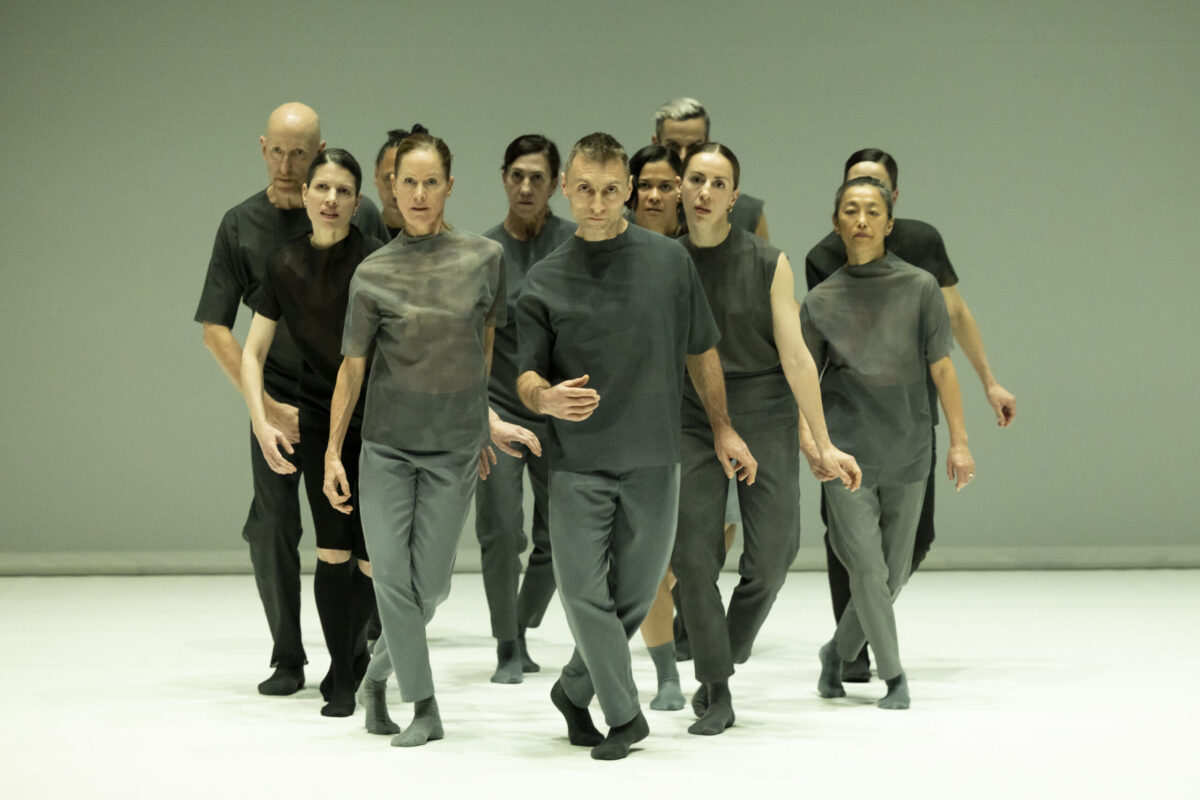
Cultural Talks
By BITEF
Alba Baral Fernandes has always been fascinated by anatomy and the human body. This Spaniard, born in 1979 in Lugo, intended to build a career in medicine, which most likely would have happened if one encounter hadn’t changed her life. At just under twenty years old, in her medical studies, she met a person from the Netherlands who was a professional dancer and made a living from it.
“Suddenly something clicked in my head, and I was like, ‘But this is what I want to do,’” she explains. Although she had experience in dancing, up until that moment she wasn’t sure if she could make a career out of it. She began exploring her options, quickly left medicine, and switched to dance.
“That decision was the best decision I’ve ever made. It was like the whole world opened up, and I felt – oh yeah, this is it. This is what makes me happy. I want to do this for as long as I can,” adds Baral Fernandes.
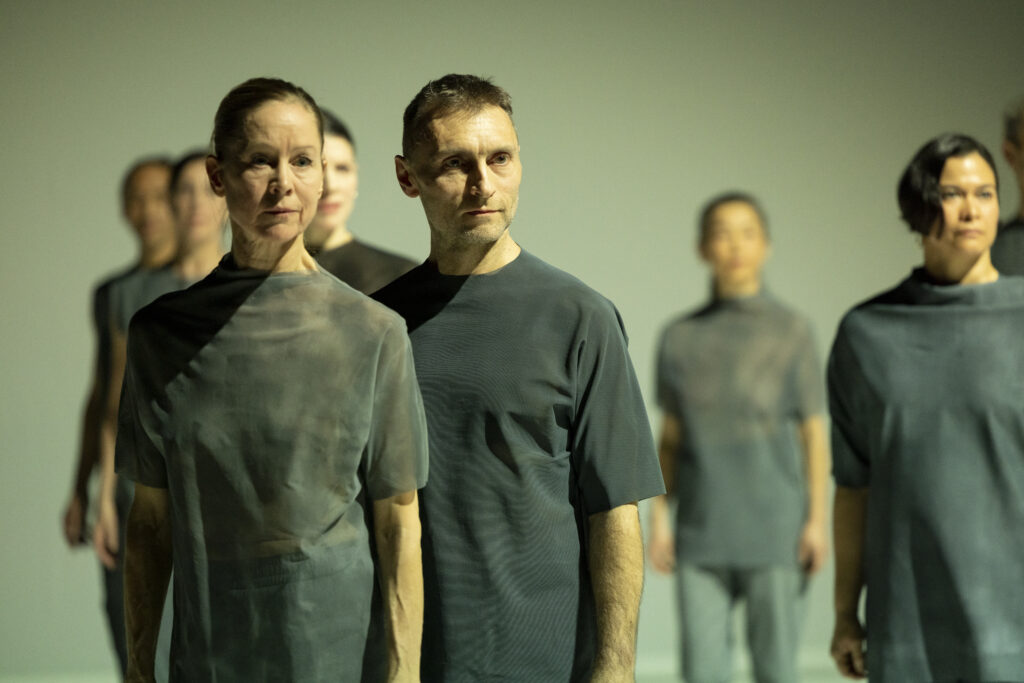
Although the career span for dancers is significantly shorter than for other performing artists, Baral Fernandes has managed to push those boundaries. Today, she is a member of the successful Dance On Ensemble from Berlin, which brings together dancers over the age of forty.
“I understand the necessity for something like this to exist,” she says. “There is a need to kind of underline the fact that age is not important, and, funny enough, the way to underline it is by actually creating a company of people who are older than the average dancers.”
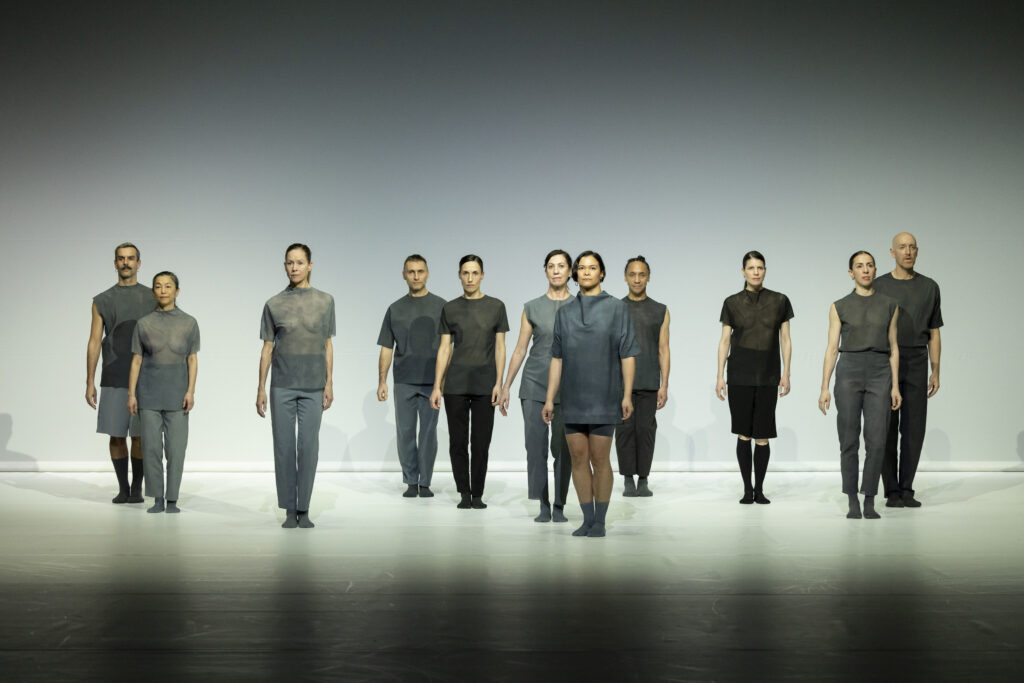
The Belgrade audience will have the opportunity to see Alba Baral Fernandes, as well as her colleagues from the Dance On Ensemble, on September 25 at the opening of the 58th Bitef Festival. The dance performance Softening was co-produced by this ensemble with the Onassis Stegi from Greece and the National Choreographic Center of Rillieux-la-Pape from France, with choreography by Greek artist Christos Papadopoulos.
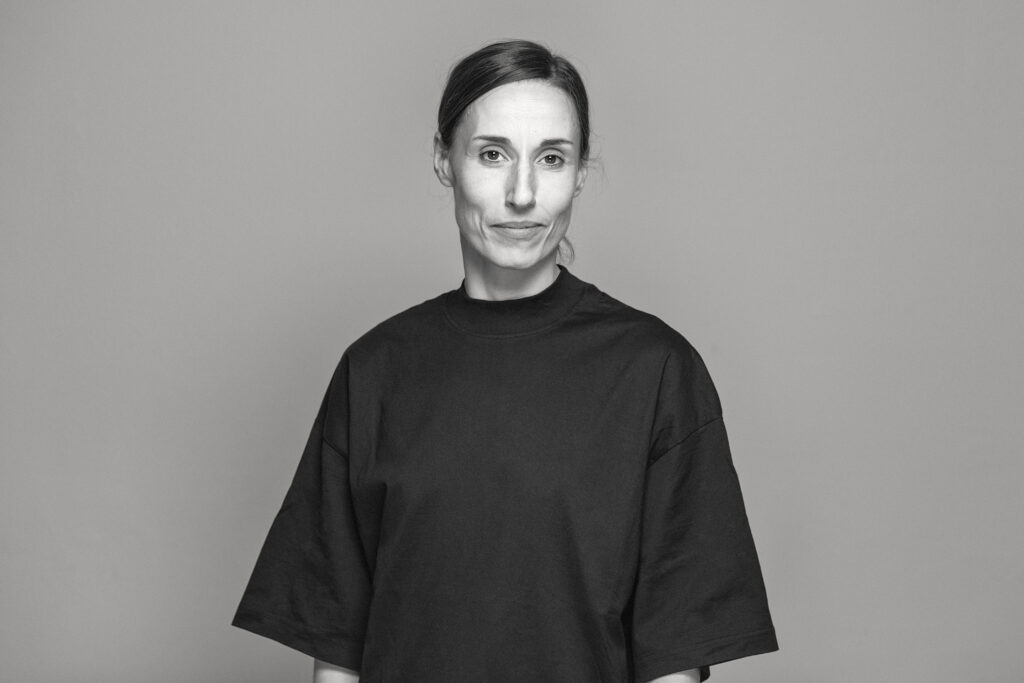
This work highlights the very essence of this ensemble by asking the question: What does it mean to mature? How does the body soften, and how does it change as it matures?
In the end, the softening in Softening is reflected in the subtly executed idea of an individual’s rebellion through barely noticeable disruptions of set boundaries
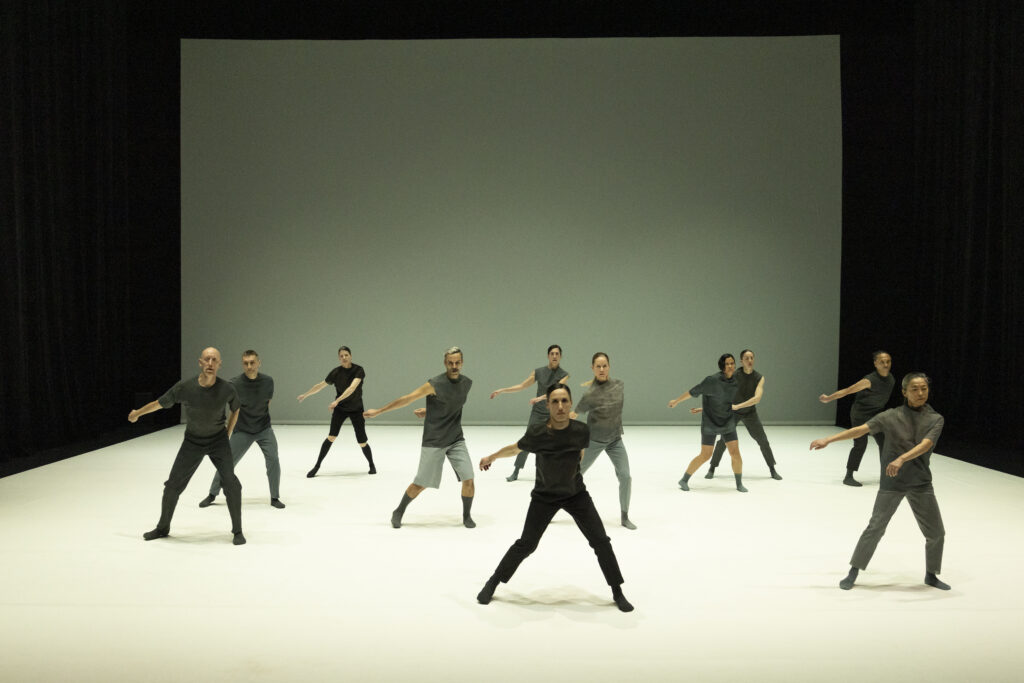
The feeling is great
The Dance On Ensemble has already participated in Bitef through its award-winning collaboration with choreographer Jan Martens. The performance Every Attempt Will End in Crushed Bodies and Broken Bones opened the 56th Bitef and later won the Mira Trailović Grand Prix, which it shared equally with the performance Solo by Nina Rajić Kranjac.
Taj Bomerstein joined the Dance On Ensemble in 2015 and by 2019 had already become the ensemble’s artistic director. He admits he’s surprised that his dance career is still going strong.
“I never expected to work this long,” Bomerstein says. “For me, it’s a surprise that I’m still able to do half the things I can do. Honestly, I’m surprised that I get up, take class, and I’m like, ‘I can still do this.’ So I’m just living in the moment. I just feel like I’m a better dancer now. I’m curious when it will start to change because, for now, it still feels quite good. I don’t know what it looks like, but it feels pretty good.”
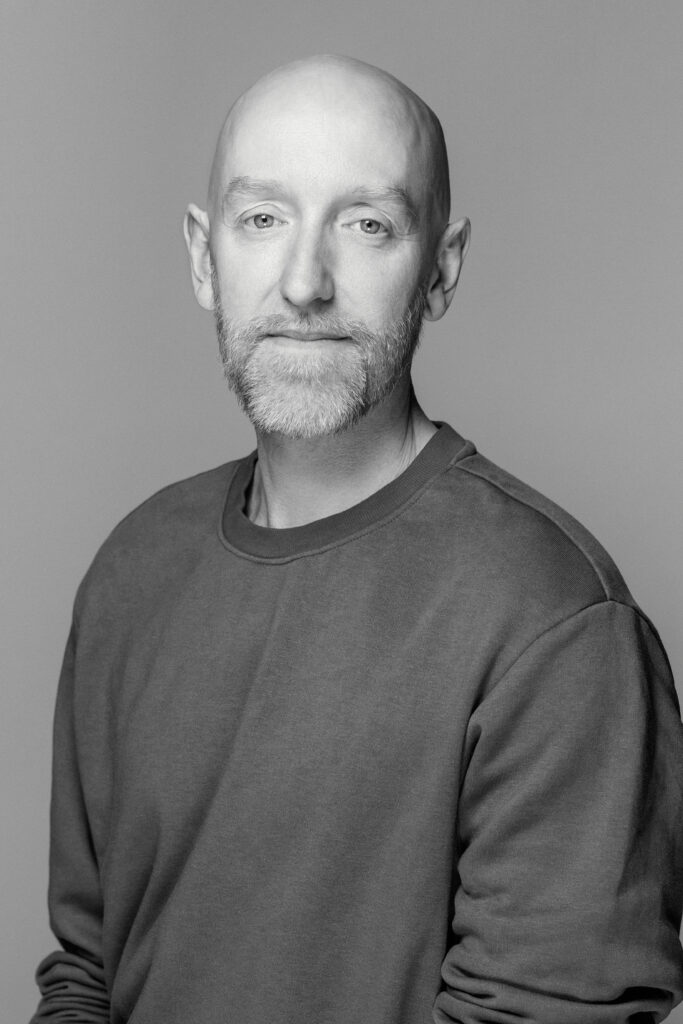
Bomerstein was born in 1968 in the U.S. and has been a professional dancer since 1989 – “so you do the math,” he adds with a laugh. Like many of his generation, the famous Martha Graham was “to blame” for his falling in love with dance.
“When I was young, especially in high school, when I first saw Martha Graham, I thought this was great. Seeing Graham, even on video, kind of shocked me that you could still tell these fairy-tale stories, but they were powerful, and the women didn’t seem fragile,” he explains. “Of course, my taste changed a bit. I was introduced to Merce Cunningham’s work, which profoundly affected me. To see the kind of intelligence that could go behind a dance performance was exciting and new.”
Less Effort for Greater Success
This is exactly the kind of “reading” of dance that awaits the audience at the opening of this year’s Bitef.
Eleven dancers gradually fill a clean, white space, shifting their weight almost imperceptibly from one joint to another, accompanied by music that sounds like a metronome, composed by the Italian-Greek composer Koti K. They explore the possibilities of human attention and concentration through a minimalistic and almost meditative stage expression.
With synchronized, minimalist movements inspired by classical dance techniques, the eleven bodies create collective images, coming together in diverse constellations that occasionally break apart only to be rebuilt, all the while allowing us to enjoy the beauty woven into the cracks of an otherwise seemingly formalized stage language.
In the end, the softening in Softening is reflected in the subtly executed idea of an individual’s rebellion through barely noticeable disruptions of set boundaries.
For choreographer, Christos Papadopoulos, who is working with the Dance On Ensemble for the first time, aging represents a shift in priorities.
The performance Softening will be staged at the opening of the 58th Bitef on September 25 at 8 p.m. at the Madlenianum Opera and Theatre
“For me, ageing is changing the priorities. Ageing is changing the function of the body because the priority of the mind keeps changing,” he explains. “In a way, when we age, we realize different aspects of movement, different aspects of the world, and different aspects of our work as artists. We have this saying in the dance field that when we age, we use less effort to achieve something we want.”
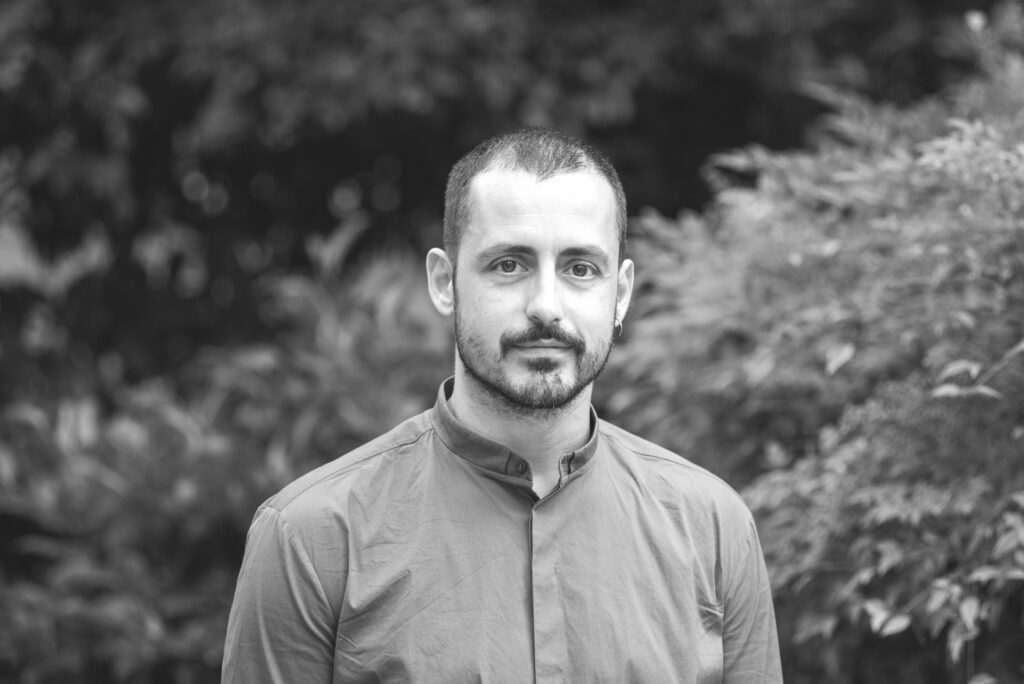
When Papadopoulos presented his piece Opus in Belgrade in 2018, he was announced as a rising European star, while today he is a confirmed name on the European dance scene. The Greek choreographer fondly remembers his encounter with the local audience.
“For me, it was one of the warmest and most generous reactions we had from the public. I had the impression – but of course, this is not objective, it’s subjective – I had the impression that the audience was extremely attentive, very quiet, and extremely concentrated. That is quite rare to observe.”
Beauty (Will Not) Save the World
This year’s edition of the festival is held under the slogan “Beauty (Will Not) Save the World”, with the main program curated by a selection team consisting of artistic director Nikita Milivojević, executive director and co-curator Ksenija Đurović, and dramaturge and co-curator Tijana Grumić.
According to them, just as Dostoevsky referred to virtue and the beauty of the human soul when he spoke of beauty saving the world, in this context, beauty represents primarily an ethical, not merely an aesthetic, category.
“However, the ambivalence of this slogan, in a world torn apart by wars, brutalities, horrific injustices, and extreme social divisions, suggests a critical reflection on whether anything, even something as elevated and noble as beauty, can truly save such a world,” explains the selection team of the 58th Bitef. “In addition to the works in the main program that articulates this question in various ways, their value also lies in the fact that they leave room for the possibility of salvation.”
Softening – What Does the Criticism Say?
“It is a joy to watch these experienced and expressive dancers. In Softening, they manage to maintain tension, increase intensity, and find freedom within the strict form,” writes the German daily Der Tagesspiegel. The portal Tanznetz.de notes how Papadopoulos and the Dance On Ensemble leave a lasting impression on the audience: “The result of this finely choreographed performance is incredibly effective: a compelling pull is created that is almost impossible to resist.”
58th BITEF
The 58th Bitef will be held from September 25 to October 4, and the audience will have the opportunity to see performances from Germany, France, Switzerland, Bolivia, Brazil, the Netherlands, Belgium, Slovenia, Croatia, and Serbia. All performances in the main program will be presented in the original language of production, with translations available in English and Serbian. Details about the program, festival events, and ticket sales can be found on the festival’s official website (www.bitef.rs).